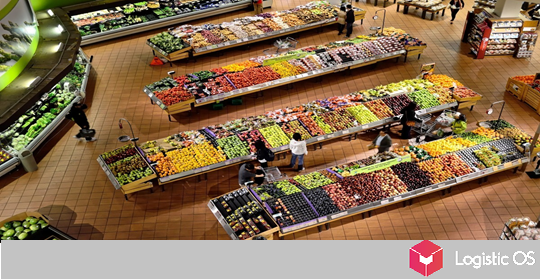Last season it was 11 million tons of grain, including 8 million tons of wheat.
The grain export quota is a measure introduced by the government of the Russian Federation to meet the needs of the domestic market.
What it will be in the new season (from February 15 to June 30) is still unknown.
But, obviously, it is unlikely that it will be possible to leave it at the same level: this year Russia has a record grain harvest, so about 60 million tons are surpluses that nothing prevents from exporting, because there is nowhere else to put them.
And if so, then the size of the quota, obviously, needs to be reviewed. There are various proposals for this.
Maybe cancel altogether?
This idea was expressed by Deputy Prime Minister of Russia Victoria Abramchenko. In her opinion, the quota was a necessary measure to protect the Russian market.
Now this problem no longer exists, so a quota is not required.
“Against the backdrop of a large harvest, there are no prerequisites for introducing any quantitative export restrictions now,” she said.
But the general director of the analytical company ProZerno, Vladimir Petrichenko, believes that everything should be abolished in general: both quotas and export duties.
However, one can hardly hope for such radical changes.
Keep but increase
It would seem that exporters should be the first to achieve a complete abolition, but, nevertheless, the Union of Grain Exporters put forward another proposal: to leave the quota, but set it at a level of about 25 million tons, and without breaking down by different types of crops — for all agricultural products in general.
As exporters note, the complete abolition of the quota means a change in the rules that operate on the market, and this is stressful for all participants who have just begun to get used to the fact that the quota is present.
Vice-President of the Russian Grain Union Alexander Korbut thinks about the same: it is necessary to set the quota at the level of 30 million tons.
In fact, this is tantamount to its absence: by the end of the season, that is, by February 14, exporters will have time to sell about 25 million tons of grain out of 60 million available for export.
Accordingly, if the quota for the new season is 30 million, then it will turn out to be just about 60 million.
But as for the idea to remove the breakdown of the quota by agricultural crops, Korbut does not support this idea: in his opinion, this can lead to uncontrolled re-export of certain crops, for example, corn.
He also criticizes the principle of “distributing quotas among exporters according to the historical principle”: the more exported in past seasons, the larger the quota in the next.
In fact, this leads to the fact that monopolists remain monopolists, and in general, nothing changes in the market. But in today’s conditions, it is more important than ever to support new exporters who will develop new foreign markets.

